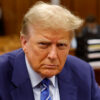Amidst the fuzziness of the Obama Administration “reset” policy with the Russian Federation, the movie Five Days of War portrays Russia’s dark side, writes Heritage’s analyst James Carafano in a recent post.
Set against the backdrop of the 2008 Russo-Georgian war, the film, directed by Renny Harlin, draws from firsthand accounts—the film ends with testimonies from Georgians who lost family members in the war—and reports by Human Rights Watch of Russian atrocities. These accounts also led Harlin to take decidedly pro-Georgian stance.
The Obama Administration has been hailing its reset policy as one of its greatest diplomatic achievements. Upon closer examination, though, it is clear that the reset has been nothing but a list of concessions to increasingly belligerent and aggressive state.
The Administration agreed to unilateral cuts of nuclear weapons in the New Strategic Arms Control Treaty, imposed sweeping restrictions on the U.S. missile defense system, and toned down the criticism of the deteriorating situation regarding human rights and civil freedoms in Russia. In return, Russian Prime Minister Vladimir Putin called the United States a “parasite” on the global economy. What was the U.S. President’s reaction? He called the reset a great achievement. If that is the case, one wonders how bad Russia would have to be to actually concern the State Department and the White House.
For Georgia, implications of the reset have been severe. Since the 2008 war, Russia has been working toward subverting the Georgian government and destabilizing the region. Moscow has been strengthening its military presence in Georgia’s break-away regions of Abkhazia and South Ossetia and continues to support their independence. So far, the United States has done a little to counter the Russian influence in the region and worldwide.
It is time for the Obama Administration to launch a true reset based on the values of freedom and justice. The new policy should focus on supporting dissent groups and democratic grassroots movements in the Russian Federation. The United States has concrete tools at its disposal—e.g. it can deny visas to corrupt businessmen and Russian prosecutors who fabricate evidence in politically motivated cases.



























